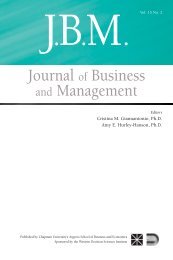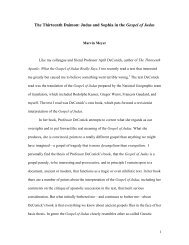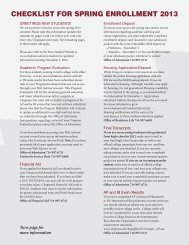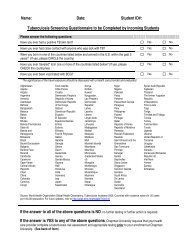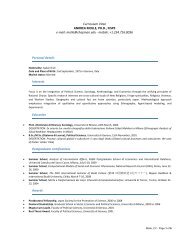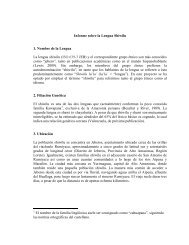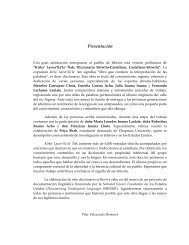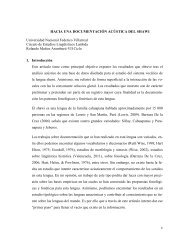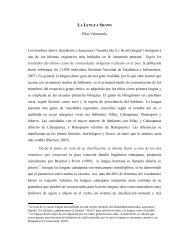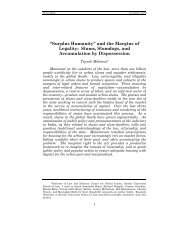Chapman Law Review - Chapman University
Chapman Law Review - Chapman University
Chapman Law Review - Chapman University
You also want an ePaper? Increase the reach of your titles
YUMPU automatically turns print PDFs into web optimized ePapers that Google loves.
Do Not Delete 12/7/2011 2:17 PM<br />
2 <strong>Chapman</strong> <strong>Law</strong> <strong>Review</strong> [Vol. 15:1<br />
corporate governance are perhaps moot as the proverbial ―camel‘s<br />
nose‖ has already penetrated the tent. 5 Even federalists have<br />
begun to accept that not only does Congress have the right to<br />
regulate public corporations, but also that it will do so when<br />
investors lobby for federal rules to address fraud or other<br />
governance failures. 6 However, notwithstanding federal efforts<br />
to impose additional governance mandates, most corporate<br />
governance covering the relationship between shareholders and<br />
management remains firmly within the purview of state<br />
corporate law. 7 Perhaps, the more narrow issue then becomes<br />
not whether we are headed toward a federal system of<br />
governance for public companies, but whether the intrusion by<br />
federal securities laws into state governance matters are<br />
beneficial to shareholders.<br />
In this Article, I examine the latest governance mandates<br />
under the D-F Act. In particular, this Article focuses on the<br />
disclosure requirements on the CEO and chairman positions, and<br />
argues that disclosures of whether the CEO is also the chairman<br />
benefit shareholders‘ governance rights under state law. The<br />
new provisions under the D-F Act combined with recent SEC<br />
disclosure rulemaking on board leadership structure address a<br />
fundamental issue of board decision-making and the affects of<br />
structural bias and ―group think‖ on director behavior.<br />
Bifurcation disclosures for public companies provide<br />
shareholders with beneficial information on board leadership<br />
structure, but more importantly, the disclosure requirements<br />
force directors to engage in discussion and analysis of how board<br />
decisions are made, and whether such decisions can be unduly<br />
influenced by a dominant CEO. State fiduciary duty<br />
requirements do not directly address social and structural<br />
decision-making biases. Shareholders benefit when federal<br />
disclosure rules address state governance shortcomings that are<br />
not otherwise conducive to private ordering.<br />
Part I of this Article explains the complimentary<br />
relationship between federal and state law, and looks at how<br />
securities laws focus on disclosure and state laws focus on<br />
fiduciary duties to protect shareholders from management<br />
misconduct. This part looks at how Congress and the SEC use<br />
5 Stephen M. Bainbridge, The Short Life and Resurrection of SEC Rule 19C-4, 69<br />
WASH. U. L.Q. 565, 620 (1991); Z. Jill Barclift, Codes of Ethics and State Fiduciary Duties:<br />
Where is the Line?, 1 J. BUS. ENTREPRENEURSHIP & L. 237, 258 (2008).<br />
6 Leo E. Strine, Jr., Breaking the Corporate Governance Logjam in Washington:<br />
Some Constructive Thoughts on a Responsible Path Forward, 63 BUS. LAW. 1079, 1084<br />
(2008).<br />
7 Id. at 1081.



